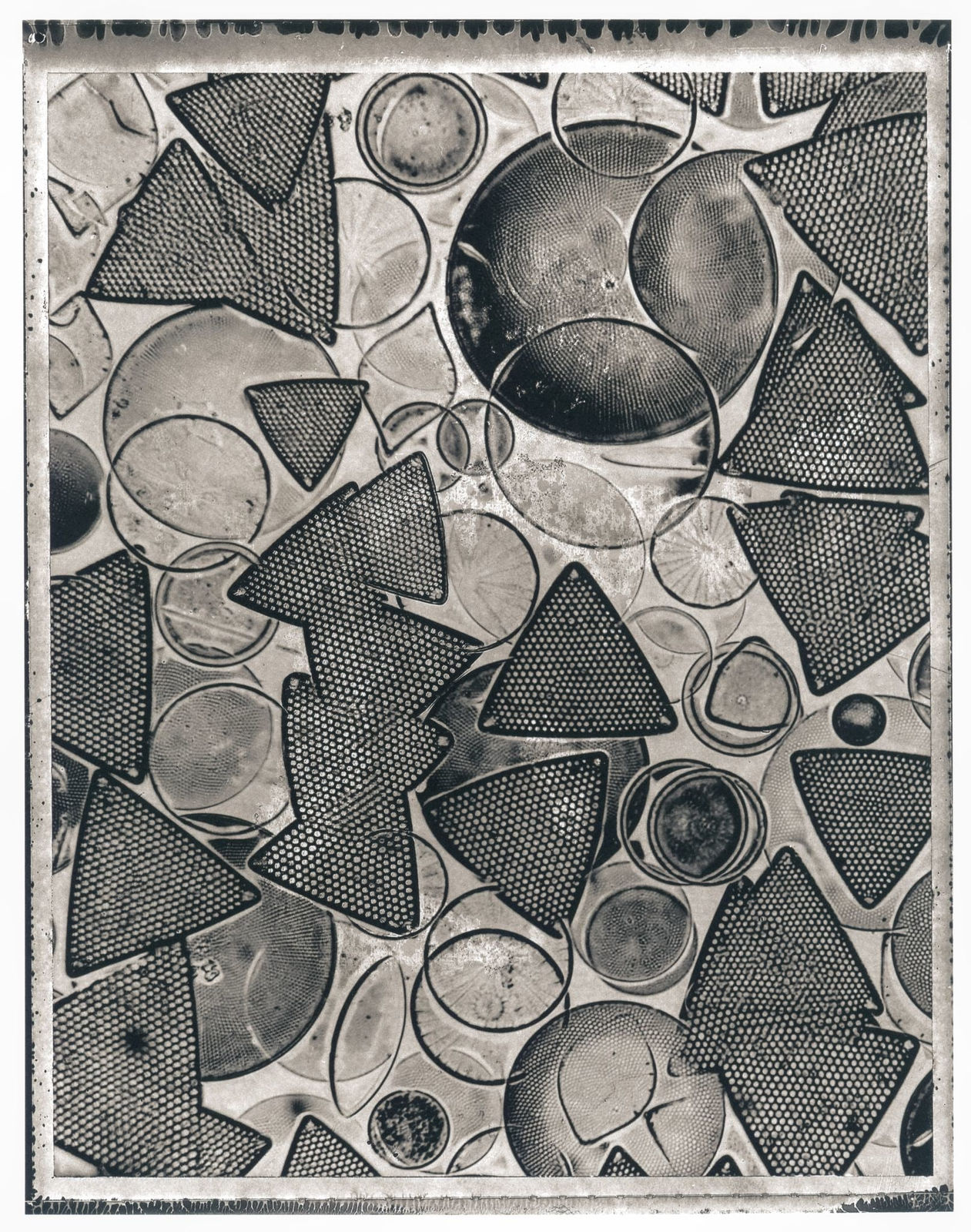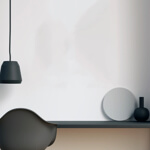Jan C. Schlegel German, b. 1965
Plate #44, 2024
Series: Life on Earth
Platinum print
38 x 28 cm
15 x 11 in
15 x 11 in
Edition of 10 plus 1 artist's proof
Using a microscope, Polaroid 55 film which he then turns into a platinum print, Jan Schlegel's series 'Life on Earth' focuses exclusively on phytoplancton, the very foundation and basis of...
Using a microscope, Polaroid 55 film which he then turns into a platinum print, Jan Schlegel's series "Life on Earth" focuses exclusively on phytoplancton, the very foundation and basis of life. It is the lowest level of the food chain and it is thanks to these microscopic plants that we are able to breath and live. Through photosynthesis, 80 percent of the oxygen is produced by plankton. Due to the pollution of our oceans, micro plastic, the increase of carbon dioxide in our atmosphere and the effects of global warming, oceans have already lost 40 percent of plankton and it is expected that every year we will lose an additional 1 percent. The Atlantic Ocean is the most affected and marine researcher consider the Atlantic Ocean already as dead.
With this series Schlegel wants to show the beauty and uniqueness of Plankton. By giving them visibility, they are not an abstract concept foreign to us. There are many different kind, some bigger and some smaller but they all have one thing in common: we depend on them. All life on earth depends on them.
More than 60% of all marine life in the oceans is under 1mm in size and is the root of our food chain, marine life like Pythoplancton produces most of our oxygen, removes most of our carbon, regulates the climate and is the life support system of the planet. We have already killed more than 50% of the plankton marine life in the world’s oceans and it is currently dying off at a rate of more than 1% year on year. Humanity cannot survive without marine life, and at the current rate of decline it will be gone ion 25 to 30 years.
With this series Schlegel wants to show the beauty and uniqueness of Plankton. By giving them visibility, they are not an abstract concept foreign to us. There are many different kind, some bigger and some smaller but they all have one thing in common: we depend on them. All life on earth depends on them.
More than 60% of all marine life in the oceans is under 1mm in size and is the root of our food chain, marine life like Pythoplancton produces most of our oxygen, removes most of our carbon, regulates the climate and is the life support system of the planet. We have already killed more than 50% of the plankton marine life in the world’s oceans and it is currently dying off at a rate of more than 1% year on year. Humanity cannot survive without marine life, and at the current rate of decline it will be gone ion 25 to 30 years.








